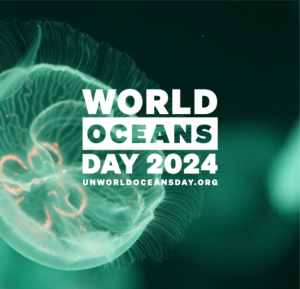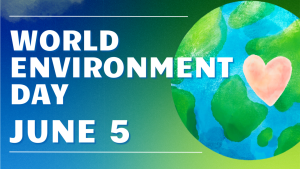 Her Land. Her Rights.
Her Land. Her Rights.
“Women are major actors in the global efforts to reduce and reverse land degradation. However, in the vast majority of countries, women have unequal and limited access to and control over land. We cannot achieve land degradation neutrality without gender equality, and we cannot exclude half the population from land management decisions because of their gender. » – Ibrahim Thiaw, UNCCD Executive Secretary
Women hold a vital stake in the health of the land, yet they often don’t have control over it. In all parts of the world, women face significant barriers in securing land rights, limiting their ability to thrive and prosper. And when land becomes degraded and water is scarce, women are often the worst affected. Investing in women’s equal access to land and associated assets is a direct investment in their future and the future of humanity. It’s time for women and girls to be at the forefront of global land restoration and drought resilience efforts.
A launch pad for an ambitious women’s land rights agenda
The global focus for the 2023 Desertification and Drought Day is on women’s land rights— essential for achieving the interconnected global goals on gender equality and land degradation neutrality by 2030 and contributing to the advancement of several other Sustainable Development Goals (SDGs).
The United Nations Convention to Combat Desertification (UNCCD) will reaffirm its commitment to gender equality with these Desertification and Drought Day 2023 objectives:
- Raise awareness of the disproportionate impact of desertification, land degradation and drought on women and girls and the barriers they face in decision-making on land issues;
- Highlight women’s contributions to sustainable land management and broader SDGs;
- Mobilize global support to advance land rights for women and girls around the world.
This year’s global observance of Desertification and Drought Day will be held at the United Nations Headquarters in New York, with events taking place in all parts of the world.
Gender equality remains unfinished business
According to UNCCD’s landmark study “The Differentiated Impacts of Desertification, Land Degradation and Drought on Women and Men,” gender equality remains unfinished business in every part of the world. Consider the following:
- Today, nearly half of the global agricultural workforce is female – yet less than one in five landholders worldwide are women.
- Women’s rights to inherit their husband’s property continue to be denied in over 100 countries under customary, religious, or traditional laws and practices.
- Globally, women already spend a collective 200 million hours every day collecting water. In some countries, a single trip to fetch water can take over an hour.

 In fact, these questions are directed to… God himself!
In fact, these questions are directed to… God himself! The International Day of the African Child is a significant event that honors the courage, resilience, and potential of African children. Celebrated annually on June 16th, this day raises awareness about the rights, needs, and challenges faced by children across the African continent. In this blog, we will explore the history of this day, its theme for 2023, the importance of celebration, ways to observe the occasion, and inspiring quotes that capture the spirit of the African child.
The International Day of the African Child is a significant event that honors the courage, resilience, and potential of African children. Celebrated annually on June 16th, this day raises awareness about the rights, needs, and challenges faced by children across the African continent. In this blog, we will explore the history of this day, its theme for 2023, the importance of celebration, ways to observe the occasion, and inspiring quotes that capture the spirit of the African child. The slogan for 2023 World Blood Donor Day campaign, celebrated on 14 June 2023, is “Give blood, give plasma, share life, share often.” It focuses on patients requiring life-long transfusion support and underlines the role every single person can play, by giving the valuable gift of blood or plasma. It also highlights the importance of giving blood or plasma regularly to create a safe and sustainable supply of blood and blood products that can be always available, all over the world, so that all patients in need can receive timely treatment.
The slogan for 2023 World Blood Donor Day campaign, celebrated on 14 June 2023, is “Give blood, give plasma, share life, share often.” It focuses on patients requiring life-long transfusion support and underlines the role every single person can play, by giving the valuable gift of blood or plasma. It also highlights the importance of giving blood or plasma regularly to create a safe and sustainable supply of blood and blood products that can be always available, all over the world, so that all patients in need can receive timely treatment. June 11th is known as International Lynx Day. Lynx is the biggest wild cat in Europe. Each one of them displays a distinct coat pattern, and so it’s possible to differentiate a lynx from another! Nine thousand specimens are found across central European forests thanks to reintroduction programs that began in the 1970s.
June 11th is known as International Lynx Day. Lynx is the biggest wild cat in Europe. Each one of them displays a distinct coat pattern, and so it’s possible to differentiate a lynx from another! Nine thousand specimens are found across central European forests thanks to reintroduction programs that began in the 1970s. When reading some texts of the gospel, I like to note the reaction of people listening to Jesus.
When reading some texts of the gospel, I like to note the reaction of people listening to Jesus. Celebrate Archives!
Celebrate Archives!  Planet Ocean: tides are changing
Planet Ocean: tides are changing HISTORY OF WORLD PEST DAY
HISTORY OF WORLD PEST DAY Solutions to plastic pollution
Solutions to plastic pollution